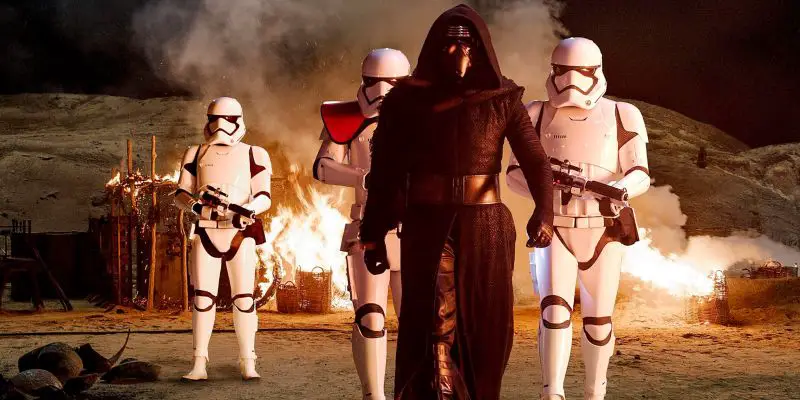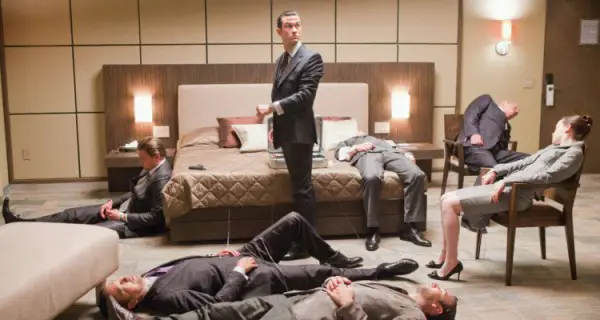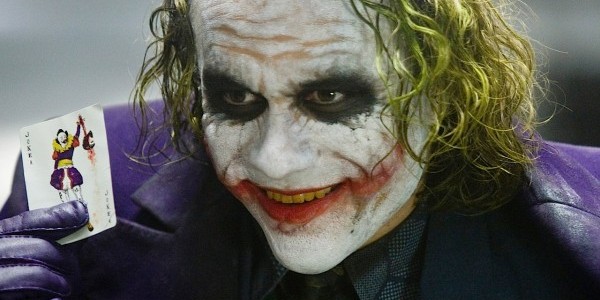It’s Good To Be Bad: How A Villain Can Make Or Break A Film

Mason Manuel is a avid film reviewer and geeks out…
With the recent blockbuster release of Star Wars: The Force Awakens I have heard nothing but praise for the new protagonists and how they (or the adorable BB-8 Droid) are the best thing to happen to the revamped series. Before I rant, let me say how much I loved the new heroes. John Boyega and Oscar Issac are hilarious and Daisy Ridley is the heroine we needed in Hollywood as well as my latest celebrity crush (critics have feelings too).
That being said, they never stole the show like Kylo Ren (Adam Driver). This has been a regular happening with the Star Wars series. Luke was not the main attraction for the original trilogy. No one ever talked about how awesome a hero Luke was and how we needed more of him. Yoda maybe, but there are always exceptions to the rule. But honestly, what did we go to see? The awesome and frightening, if brief moments where the mysterious Darth Vader kicks serious rebel scum ass.
And he’s not alone either. Movies with fantastic villains are often the ones that live on in our hearts. Can you tell me the name of the protagonist from Wall Street? What about Edward Norton’s nerdy train wreck from Fight Club? Ok, the last one I’m cheating because the main character wasn’t given a name so that the audience could better place themselves in his shoes, but how many of you noticed that he didn’t have a name to begin with?
Now, let me tell you why movies don’t need better heroes; they need better villains.
Break ‘Em Down
Exhibit A: “You either die a hero, or live long enough to see yourself become the villain.”A good villain forces the hero to improve, or even better, fall into darkness. The great thing about film is that it can give birth to our fantasies: the worlds we want to live in, the people we want to be, the odds we want to overcome. But there’s more to us than that, isn’t there? There are the people that have wronged us that we want to see punished, the world that sees our way of thinking.
This is the dirty little secret in cinema. When we see the bad guy get the ever loving crap beat out of them, we cheer. We love seeing the misery of the enemy. But the good guy has to lower himself to violence in the first place for this to happen. There was a YouTube video that was making waves a little while ago talking about why Danny from The Karate Kid was the real bad guy of the film. The video itself may be a little bit silly, but it’s hard to deny some of the points it makes. Good and evil is a simple point of perspective and when the line between the two gets muddled, it’s easy to lose the plot of who to root for.

Exhibit B: A good villain never really comes off as one. Inception is one of my favorite films of all time. The story, effects, and characters are all fantastic. But our protagonists, our “heroes” … they’re thieves. They are illegally attempting to change the mind of a business competitor using a very convoluted method. Sure, one of them has kids to think of and a dead wife, yada yada yada, but these people are straight up criminals. And we absolutely love them.
There’s very little not to enjoy; they’re charming, smart, witty, and good in a fight. But they are villains. There’s nothing wrong with liking the bad guy, but it does call for some self-reflection when we see ourselves siding with them, because we do. We WANT the extractors to succeed in their dream heist mission. A villain who we almost see as the good guy throughout the story is one that lives on with us and results in the encompassing film doing the same.
Cream of the Crop
My favorite villain of all time comes from a film you may not have even heard of. With a relatively unremarkable release and mixed critical reviews, Law Abiding Citizen fell under the radar. The film centers around a engineer whose wife and child are viciously raped and murdered. When the criminals are caught, they are not given the justice the engineer strives for and so he makes it his personal mission to give it out personally and reset the entire justice system.
Ultimately (spoiler alert) he fails and people stop getting killed… but should they have? The engineer was fighting against a system more focused on keeping up conviction rates than delivering fair justice and was trying to make things right the way the government could not. The “hero” of the story is a lawyer simply trying to keep the engineer from killing more people and keeping things the way they are.
Though it may be dark to think about, who was in the right, really? The man who would allow injustice to occur or the other who would do the unspeakable to assure that justice was correctly given? These are the questions that a good villain makes us ask ourselves and why movies like this will stay in our heads, constantly having us go back and forth over moral grey areas.

But what about strong heroes? Shouldn’t they be as pivotal, if not more so than the villain? The problem is that a good hero can only be as compelling as the baddie challenges them to be. Let’s look at The Dark Knight trilogy. Nolan’s excellent take on the bat was a good palate cleanser for fans still recovering from Batman and Robin. But which one of the threesome is the best film?
Scarecrow was interesting and Bane was fun to laugh at but the Joker from The Dark Knight blew us away, literally and metaphorically. He was unpredictable, insane, and strangely charming at the same time. This in turn forced Christian Bale’s Batman to be the same. He pushed his limits, nearly gave into killing this foe that he had never seen the likes of before, and pushed away everyone who cared for him to do it. He became a deeper, more fleshed-out hero because the Joker forced him to be. When our heroes aren’t challenged, they aren’t forced to improve and that normally results in a poor film, or at least one that doesn’t live up to its full potential.
What’s In a Hero?
There are, of course, exceptions: Marvel movies present easily some of the least interesting villains of all time, but create heroes who stick with us. The problem with these films is that they have an expiration date. Save for massive team ups like The Avengers, none of the Marvel-verse films stick with with you past their initial release and Blu-Ray sales.
Don’t get me wrong, I’m a huge comic movie fan, but I’ve never considered them paramounts of cinema for obvious reasons, one of which being that the threat never feels real. The heroes get to spout off their one-liners and have fun but it’s hard to get invested in someone who doesn’t have any real problems like the rest of us mere mortals. Oh, Red Skull is going to destroy the world with the almighty tesseract? Try paying student loans! That’s true world destruction.
The point is, when a hero is challenged, they become more human, which is to say, troubled and conflicted. Without a good villain, there is no real challenge. Where there is no challenge there is no good film.
Do you think that the villain makes the movie? Or does the villain really matter at all? Let us know in the comments!
Does content like this matter to you?
Become a Member and support film journalism. Unlock access to all of Film Inquiry`s great articles. Join a community of like-minded readers who are passionate about cinema - get access to our private members Network, give back to independent filmmakers, and more.
Mason Manuel is a avid film reviewer and geeks out at every Star Wars convention no matter how many Jar Jars there are. When he's not busy on film inquiry, he writes and plays games on his own blog. Follow him on twitter @reeldudereviews.













